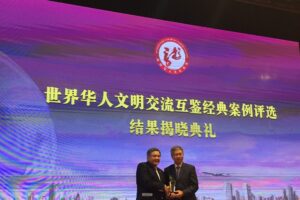Growing up in Potomac, Maryland, I looked forward to the blooming flowers that hail spring in our region. But the Yoshino cherry blossom trees surrounding Washington, D.C.’s Tidal Basin reached peak bloom earlier than expected this year. Whereas the fourth and fifth stages of the blossom cycle tend to stretch over ten days, the unusually warm weather sped them up to only four.
According to the National Park Service, this is the fastest that the trees have moved through these stages in the last thirty years, matched only in 2015. Peak bloom, which describes when 70% of the cherry blossoms are open, began four days ahead of schedule on March 28th. Kyoto, Japan’s peak bloom began two days prior on March 26th, the earliest in over 1,200 years.
All signs point to global warming as the cause of this early peak. Through a process called the greenhouse effect, carbon and other atmospheric gases naturally warm the earth by absorbing and reflecting heat. Recent human activity has increased carbon emissions, however, causing worldwide temperatures to rise by an average of 1.33°F over the last century. While this shift may seem insignificant, it has had dramatic environmental consequences.
With President Biden in office, Democrats are hopeful that there will be action on climate change. Still, one part of their strategy might be missing. Although some may not initially associate Asian Americans with environmentalism, a 2016 National Asian American Survey poll found that 76% of Asian Americans favor stricter emissions policies to address climate change. This is 12 percentage points above the national average of 64%. Support among individual Asian American ethnic groups such as Chinese, Vietnamese, and Cambodian is even greater, reaching as high as 89%.



